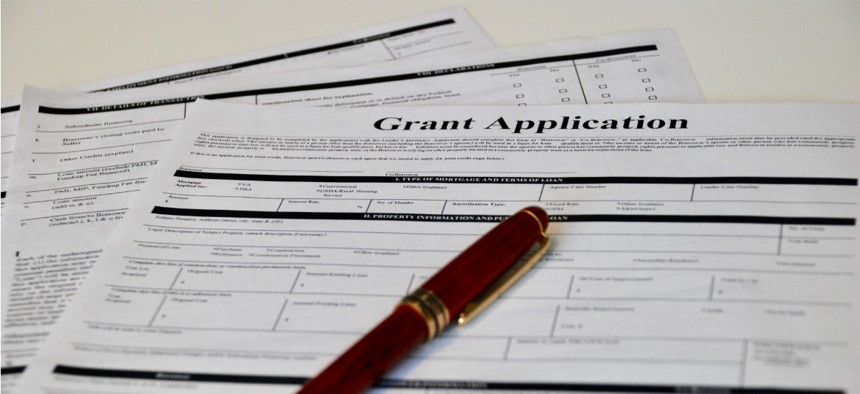
OMB Centralizes Agency Reporting of Grant Recipients
The goal is to ease the paperwork burden across government.
Seeking to ease paperwork burdens on agencies and grant recipients, White House Budget Director Mick Mulvaney on Thursday issued new guidance aimed at standardizing and centralizing reporting formats and processes.
The federal government spends about $700 billion on grants and cooperative agreements annually that support some 40,000 recipients from state and local governments, universities, non-profits, tribes, and small businesses, Mulvaney estimated in a memo to all major agency heads.
OMB’s goal is to better align grantee certifications with the modernization efforts of the president’s management agenda.
The effort builds on the results of a pilot program required by 2014 Data Accountability and Transparency Act and is a cross-agency priority goal to improve grants management and accountability.
Specifically, as of Jan. 1, 2019, the guidance would make optional the use of form SF-424B as agencies phase out its use in announcements for new funding opportunities. A year later, agencies will post their funding opportunities and recipient certifications in a central repository in the System for Award Management. Grantmaking agencies previously designated as “Centers of Excellence” must also pursue centralization.
Agencies are to review forthcoming data standards for completeness and accuracy and to ensure they are reflective of differing types of grants, with an eye toward applying governmentwide standards in designing new grant systems.
In addition, agencies should work with OMB to share services and systems with other agencies to reduce reliance on legacy computer systems as well as lessen the burden on grant recipients.
Finally, agencies should review their grantmaking policies and business processes in areas such as public assistance to identify areas of unnecessary or duplicate data collection as well as reporting requirements and legal or regulatory barriers. Such data will also help OMB track spending, Mulvaney added.
OMB’s efforts to encourage agencies to use standardized data to track program performance are still a work in progress, as noted in a Government Accountability Office report released on Wednesday. “Agencies’ reported use of performance information to make decisions, and leading practices that can promote such use, generally has not improved” since GAO’s previous survey in 2013, the watchdog reported.
Though the administration has taken steps to improve the use of performance data via the OMB-chaired Performance Management Council, “it has not yet taken a systematic approach to identify and share proven practices that led to, or challenges that may be hampering, increased use of performance information by managers,” GAO wrote.







